Scientists share ideas on the future of AI at CUHK-Shenzhen
The Academician Summit Forum, jointly organized by the School of Data Science at The Chinese University of Hong Kong,Shenzhen, the Shenzhen Artificial Intelligence and Robotics Research Institute (AIRS), and the Shenzhen Key Laboratory of Pattern Analysis and Perceptual Computing,was held in Shenzhen?on Jan. 27, kicking off a?series of activities?of the?School of Data Science that marks the?10th anniversary of?the university.
With the theme of "AI + Science for Future Pattern Analysis and Perceptual Computing," more than 150 guests from the government, academia, and research institutions gathered?at the university?to discuss?how to assist?artificial intelligence?development?in the new era through?pattern recognition and perceptual computing.
The forum, chaired by?Prof.?David?Zhang,? member of the Royal Canadian Academy of Sciences and?academician of the Canadian Academy of Engineering, invited?Prof. Haizhou Li, academician of the Singapore Academy of Engineering, Prof. Qiang Yang, academician of the Royal Canadian Academy of Sciences and?of the Canadian Academy of Engineering, Prof. Wenfei Fan, foreign?academician of the Chinese Academy of Sciences,?academician of the Royal Society, and?academician of the Royal Academy of Engineering, Prof. Yi Pan, academician of the U.S.?Academy of Medical and Biological Engineering,?foreign?member of the Russian Academy of Engineering, and?foreign?member of the National Academy of Engineering of Ukraine, Prof. Shipeng Li, member of the International Eurasian Academy of Sciences, and Prof. Rui Zhang, member of the Singapore Academy of Engineering, to give keynote speeches. ?
Artificial intelligence has become the core driving?force for?technological innovation and industrial change. Pattern analysis and perceptual computing, as important branches in the field of artificial intelligence, have greatly promoted the development of intelligent technology through applications in image recognition, speech processing, language understanding and among others. Future social progress and scientific development cannot be separated from the in-depth research and innovative applications of the core technology of artificial intelligence. Under such a background, the Shenzhen Key Laboratory of Pattern Analysis and Perceptual Computing and the School of Data Science of The Chinese University of Hong Kong, Shenzhen will focus on the new generation of AI technology, bring together top scholars from around the world, explore new methods of pattern analysis and perceptual computing, discover new applications of AI+Science, and promote the in-depth research and settlement of AI technology to promote the future development of science and social progress.?
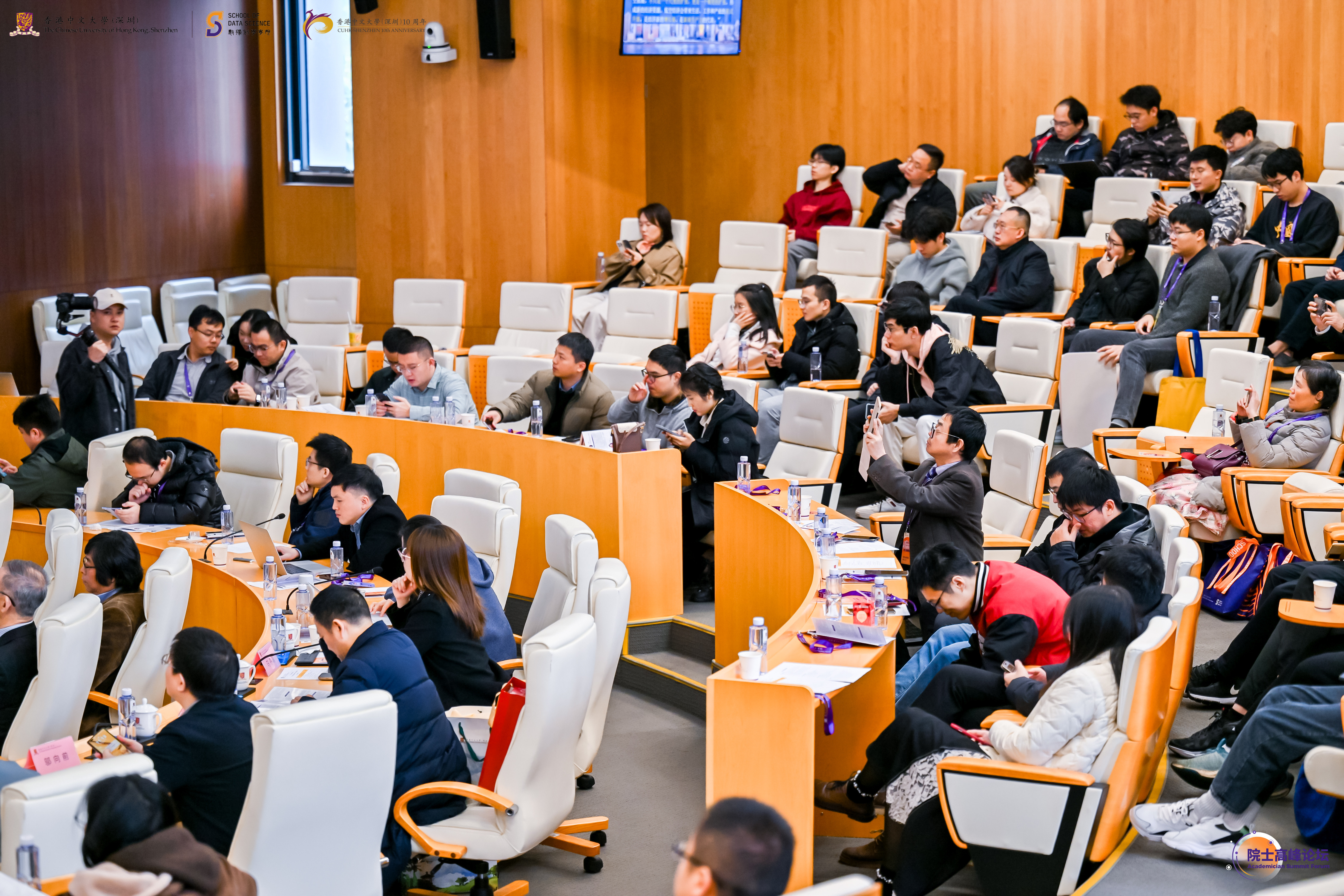
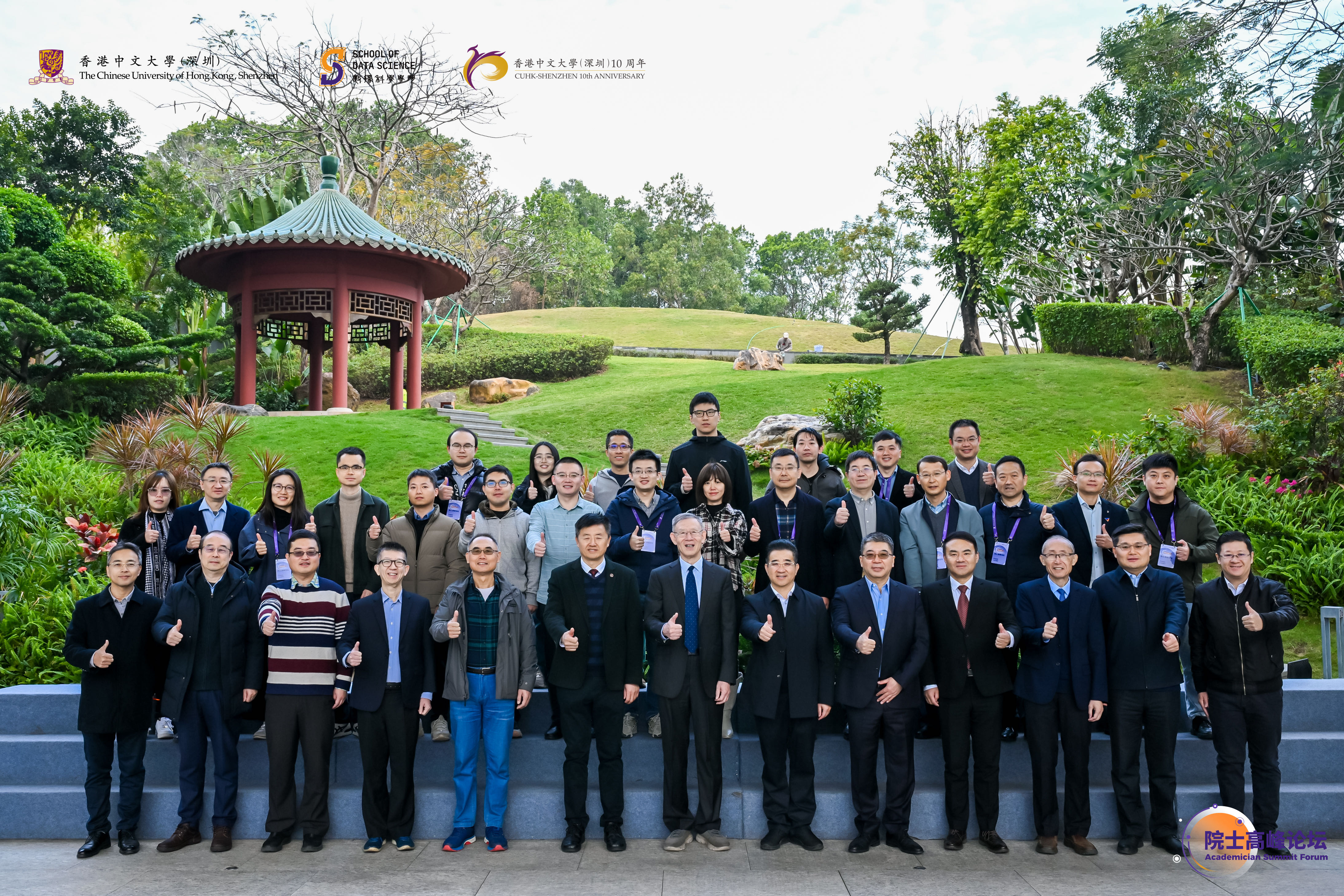
?
Opening Remarks
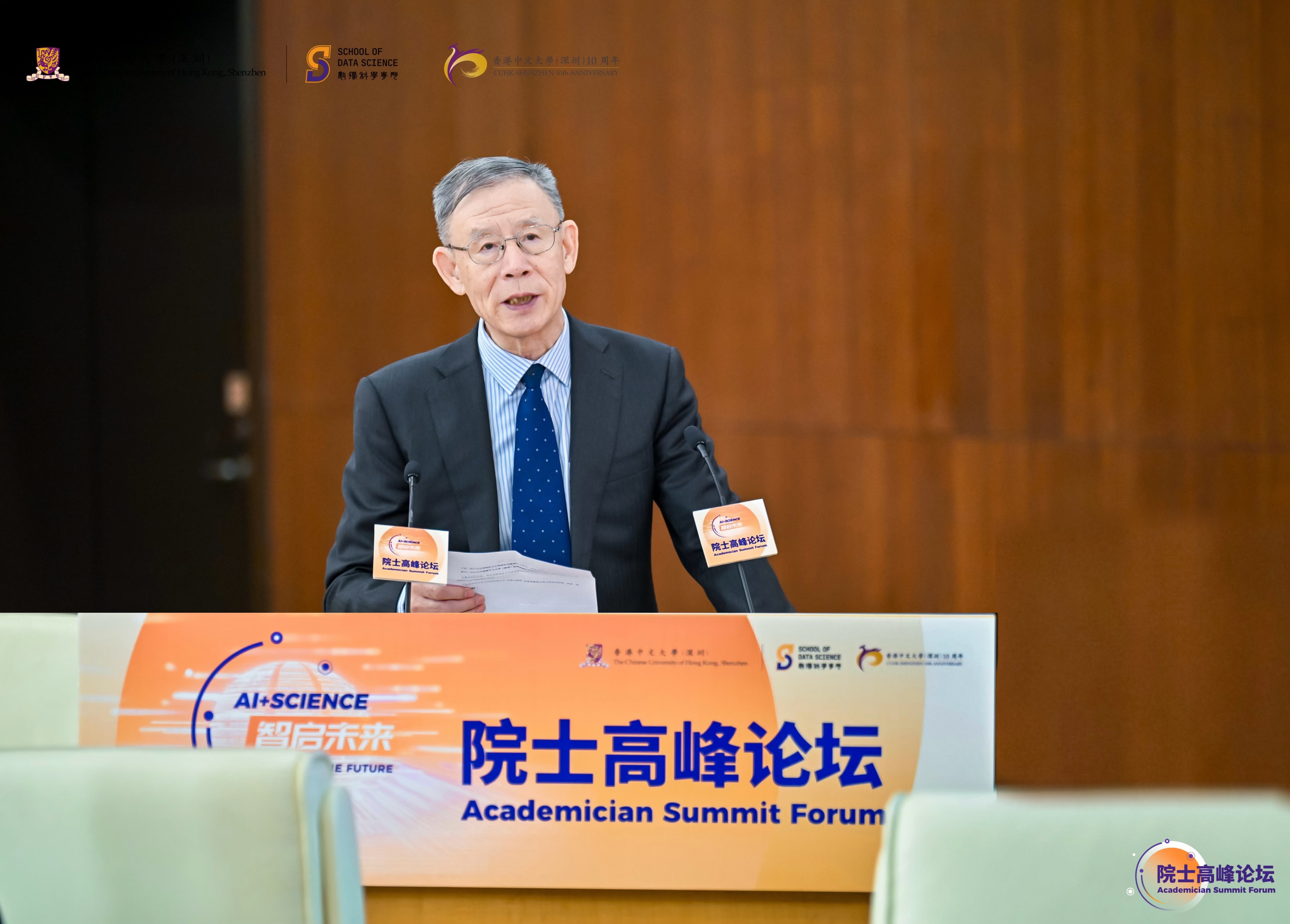
Academician David Zhang gives a speech at the opening ceremony.
?
Tony Li, associate?vice?president and?director of?the Research Administration Office of CUHK-Shenzhen,?delivered a speech. On behalf of the?university,?Li?first welcomed scholars and friends?to the forum and briefed them on the development of CUHK-Shenzhen over the past decade. Li then?expressed gratitude?for the support of the Shenzhen and Longgang governments. ?
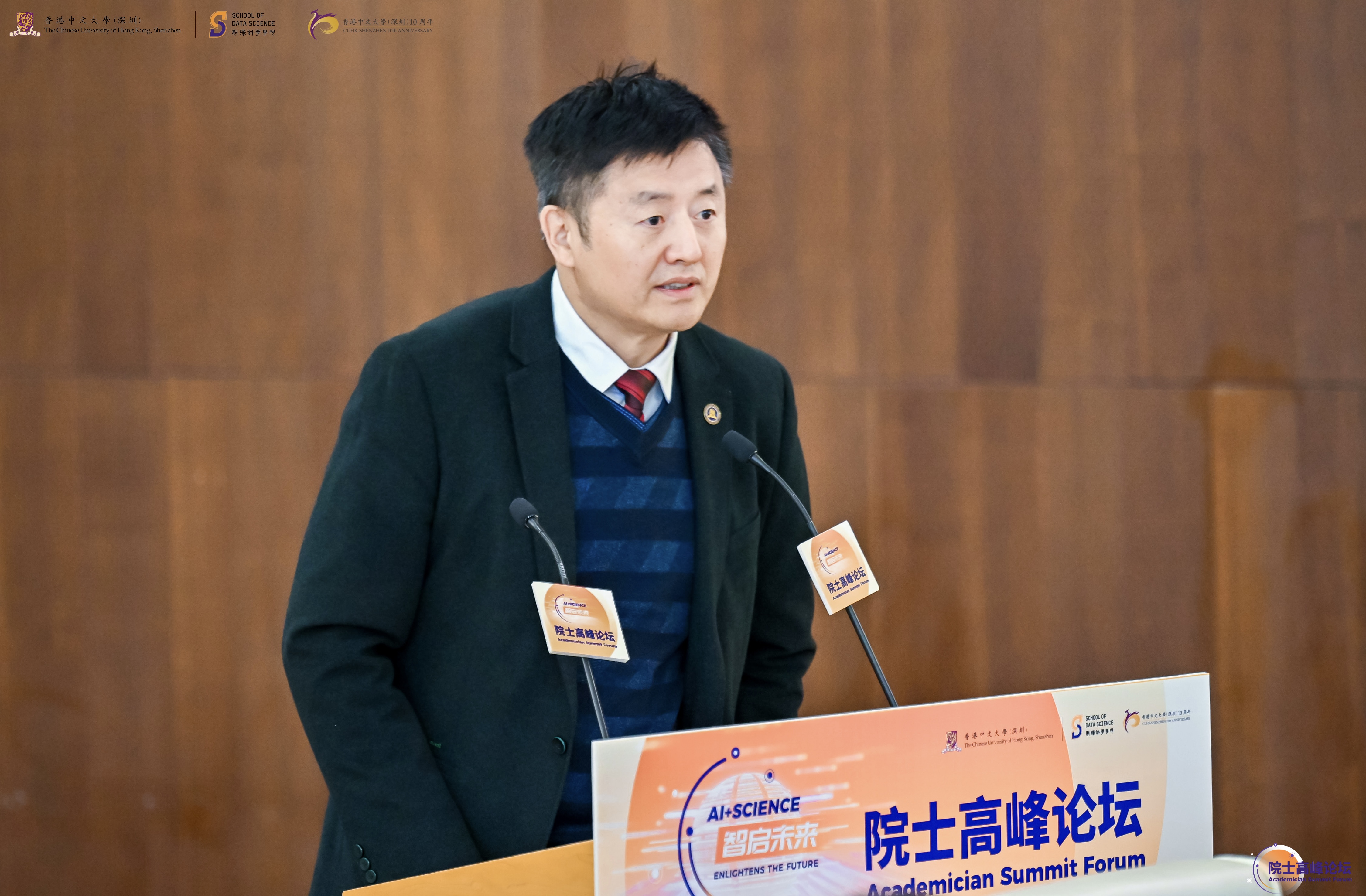
Tony Li, associate?vice?president and?director of?the Research Administration Office of CUHK-Shenzhen.
Liu Jiguo,?director of the Talent Bureau of Longgang District, delivered a speech as a specially invited?guest.?Director Liu expressed Longgang’s?strong support for?building a?modernized industrial system led by scientific and technological innovation, and then he discussed?the?development of?Universiade?Shenzhen-Hong Kong International Science and Education City.
As one of the core engines of the Science and Education City, CUHK -Shenzhen has attracted a large number of high-level experts and scholars as part of an important strategy for science and technology innovation in Longgang District.

Jiguo Liu,?director of the Talent Bureau of Longgang District
?
Themed Report
The?academician?summit brought together global academic leaders, invited top experts and scholars in related fields around the world to share their cutting-edge researches?and ideas, and spread inspiring ideas through master keynote speeches?on?AI technologies related?to the common interests of mankind.
Themed Report I:
Reflections on Language and Intelligence
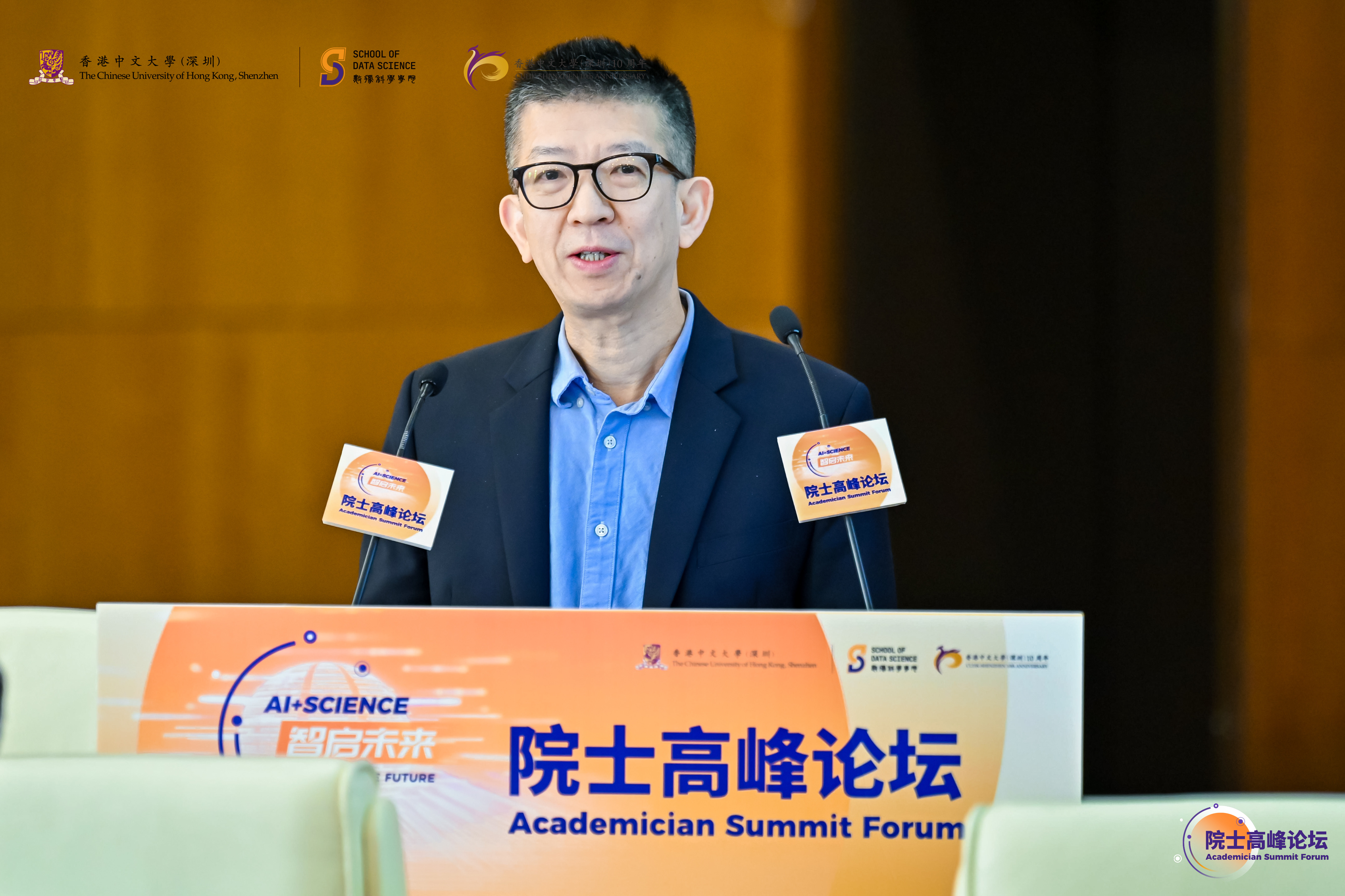
Academician Haizhou Li
Around the theme of?"Reflections on Language and Intelligence,"?Li Haizhou,?X. Q. Deng Presidential Chair Professor, executive?dean?of the School of Data Science of The Chinese University of Hong Kong, Shenzhen,?and?member of the Singapore Academy of Engineering,?used language as the entry point to analyze the nature of intelligence, discussed the development history of artificial intelligence,?demonstrated?the?connection between artificial intelligence, language processing?and big models, and?explained the relationship between ChatGPT and Computational Linguistics.
?
Themed Report II
Model Thinking
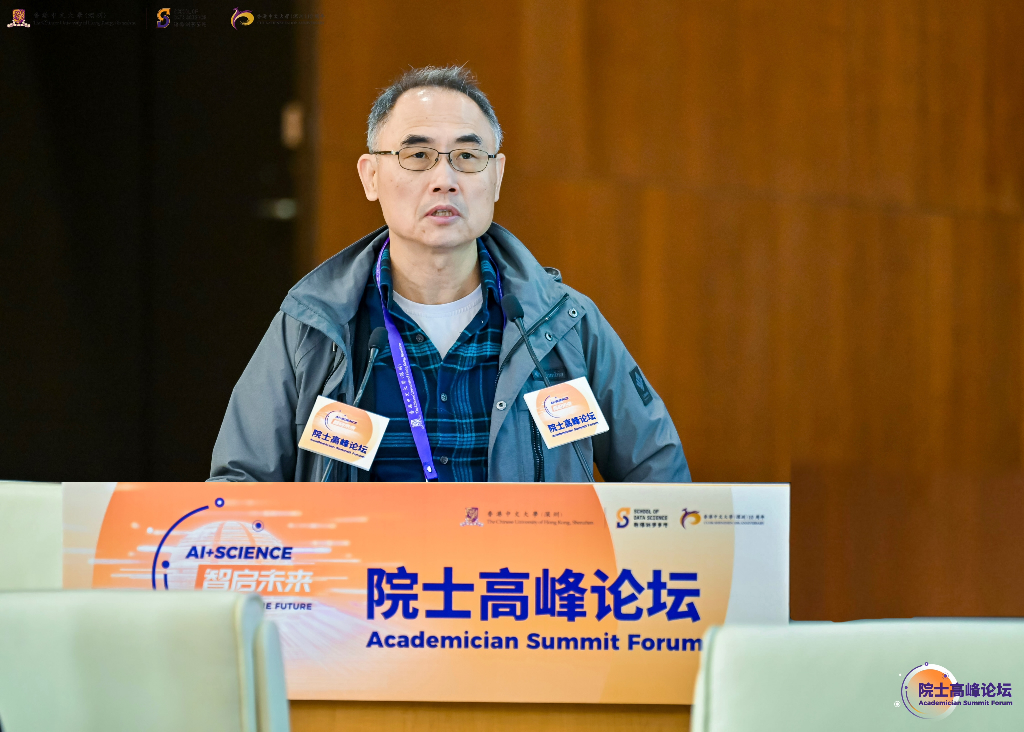
Academician Qiang Yang
Professor Qiang Yang,?member of the Royal Canadian Academy of Sciences,?member of the Canadian Academy of Engineering, and?chief?artificial?intelligence?officer of?We?Bank, discussed?data distribution, privacy protection and model thinking around the?theme of "model?thinking."? He also proposed?a federated big model framework based on?federated?learning,?transfer learning, and?big model technology that can be applied to local, server, and other multi-terminal secure communication?and introduced?the training, optimization, and application of?the?federated big model framework.?
?
Themed Report III
Embedding ML Models in Logic Rules
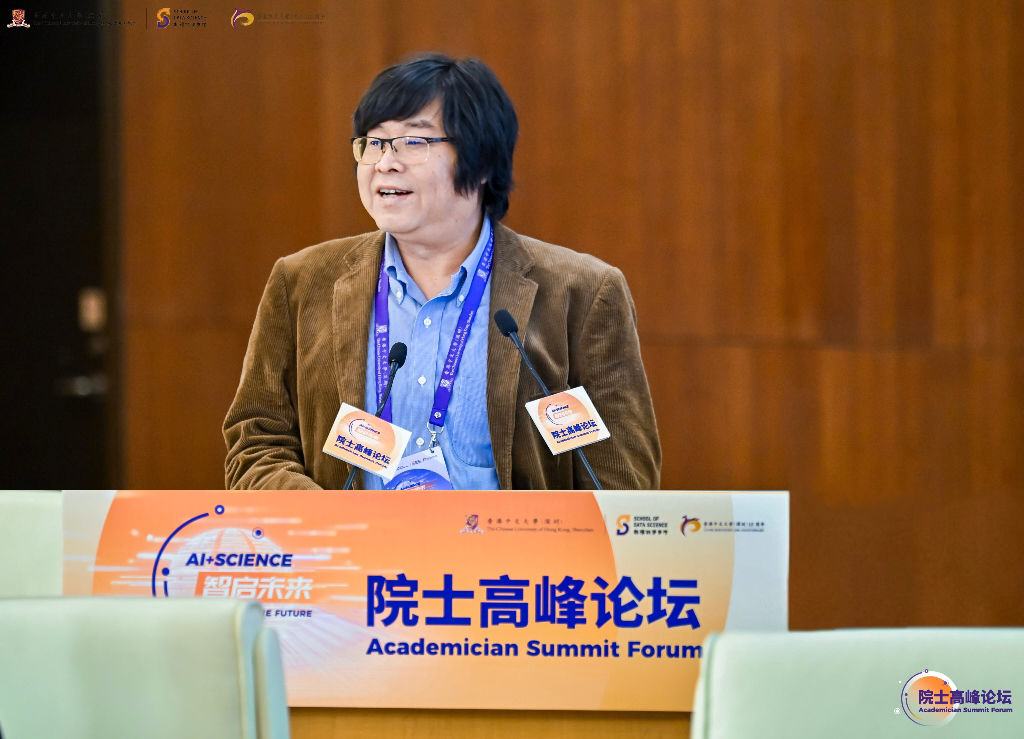
Academician Wenfei Fan
Fan Wenfei,?chief?scientist of Shenzhen Institute of Computing Sciences,foreign?academician of Chinese Academy of Sciences and?fellow of the Royal Society,and?member of the Royal Academy of Engineering, talked about the fusion of logical inference and machine learning. He also highlighted the successful applications?of the program in many?scenarios, which greatly reduced costs and energy consumption?and was of great significance to the development of AI?for society and the economy.
?
Themed Report IV
AIGC Big Models Empowerment in?Biomedicine
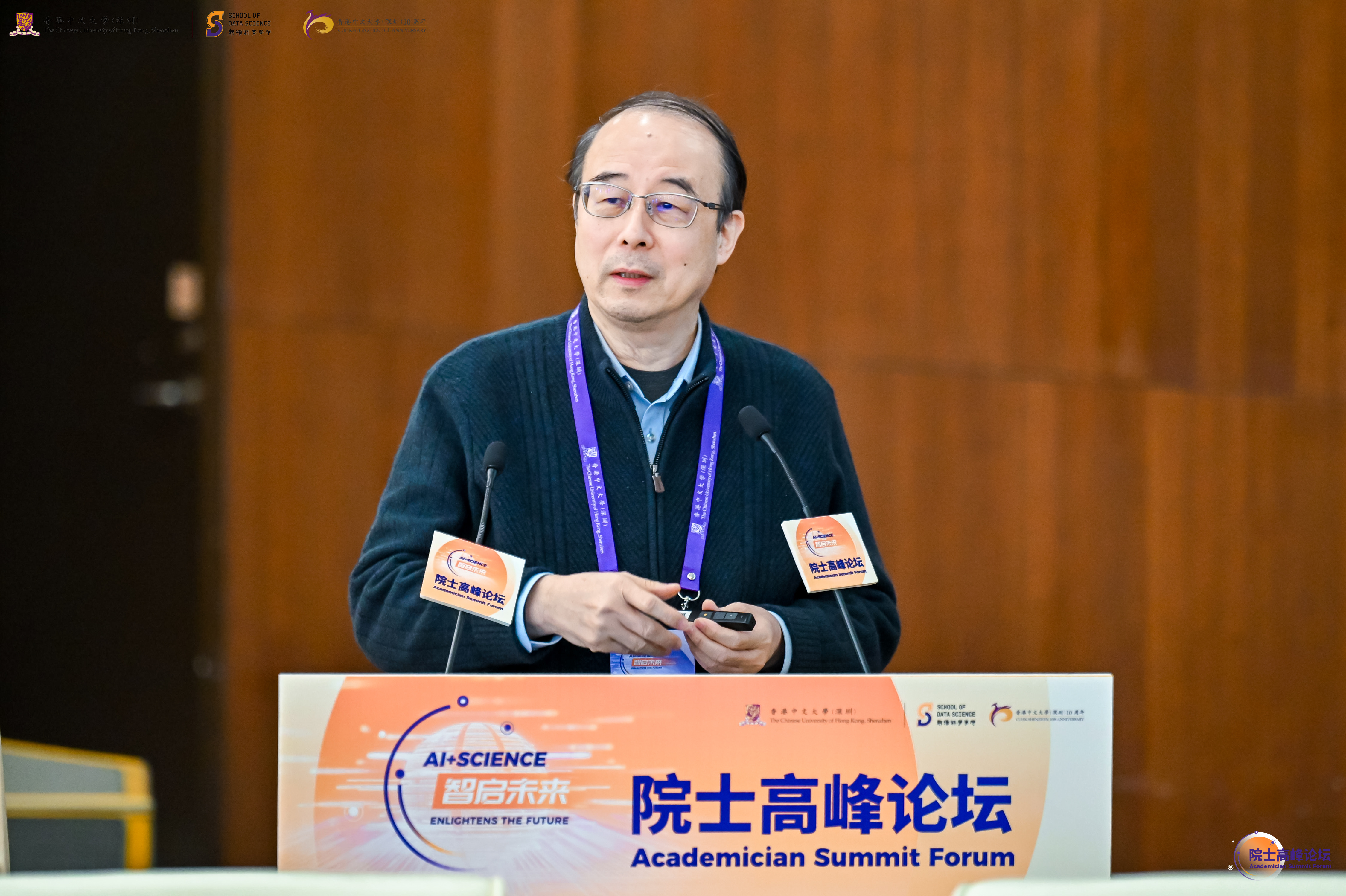
Academician Yi Pan
In the?report?"AIGC Big Models Empowerment in?Biomedicine,”Professor Pan Yi,?dean of the School of Computer Science and Control Engineering of?SIAT,?academician of the American Academy of Medical and Biological Engineering,?foreign?academician of the Russian Academy of Engineering, and?foreign?academician of the National Academy of Engineering of Ukraine, pointed out that?dedicated big models, such as the bio-big models, have lower data, storage, and arithmetic requirements?compared to general big models. They will?be an?important direction for?future development. He also highlighted?applications?of?big biological?models?that have?demonstrated strong capabilities and potentials?for?biomedicine?research.
?
Themed Report V
Low Altitude Economy and New Productive Forces
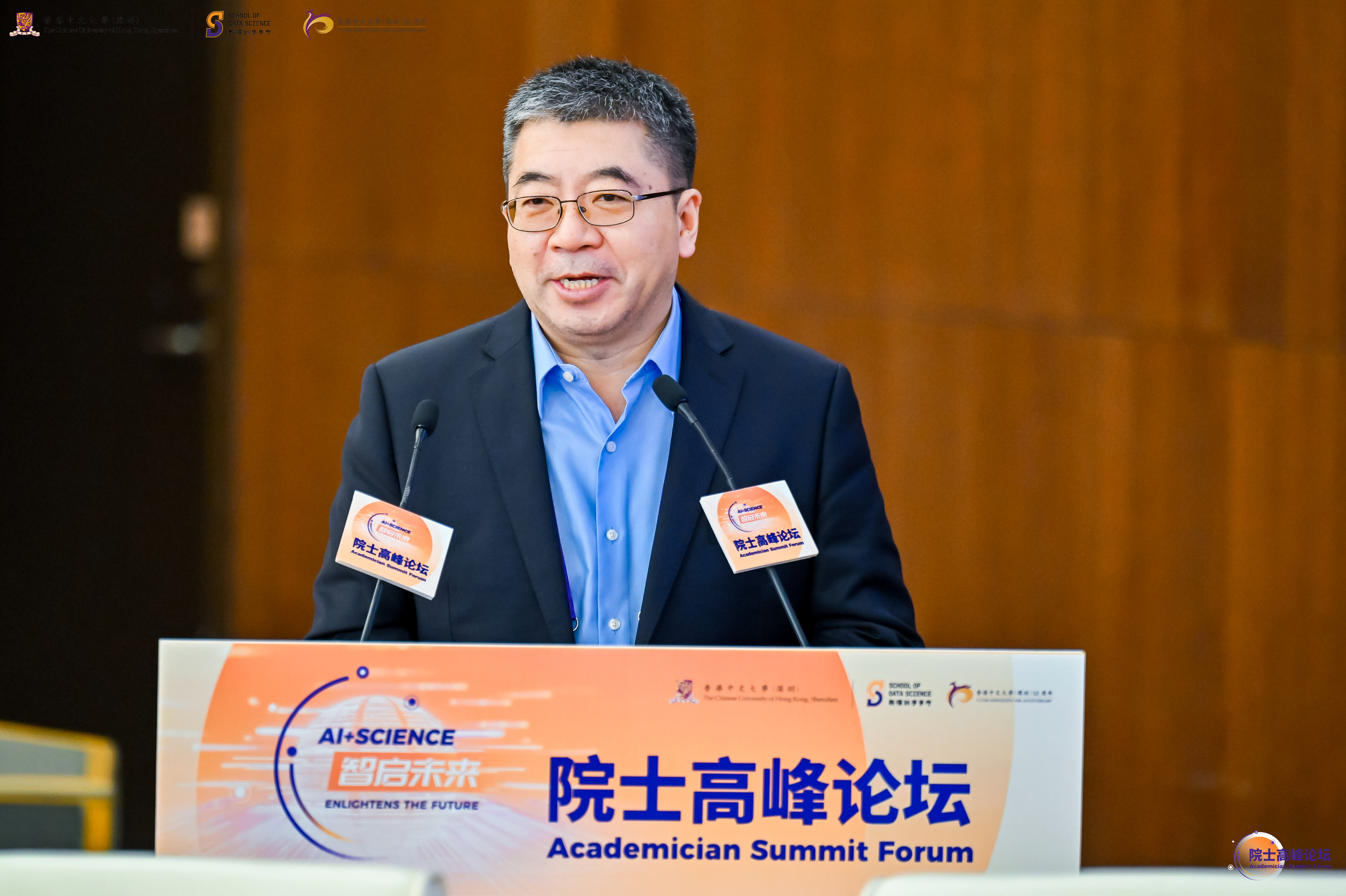
Academician Shipeng Li
Shipeng Li,?chair?scientist of the Institute for Digital Economy of Guangdong, Hong Kong and Macao Greater Bay Area (IDEA) and?academician of the International Eurasian Academy of Sciences (IEA), emphasized?the importance of the development of the low altitude economy and its potential applications?during a speech titled?"Grasping the New Opportunities of Low Altitude Economy and Constructing the New?Productive Forces."?He demonstrated?comprehensive technological solutions, discussed how the low altitude economy would produce a new paradigm of life, and called for the integration of low altitude intelligence into the city's infrastructure in order to improve the efficiency of mobility.
?
Themed Report VI
AI-Empowered Smart and Programmable Radio Environment via Intelligent Reflecting Surface (IRS)

Academician Rui Zhang
Zhang Rui, X. Q. Deng Presidential Chair Professor of the School of Science and Engineer, CUHK-Shenzhen and member of?Singapore Academy of Engineering, shared results concerning the?combination of wireless communications and artificial intelligence, introduced the 6G communication, which solves the problem of signal distribution, and elaborated a solution to the signals sent and reflected by?artificial intelligence algorithms. ??
The lectures of the guests?received a warm response,?and?their profound insights into the history of AI development and the future of AI?illustrated a new vision and?inspired?the audience.





